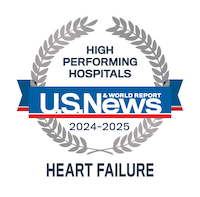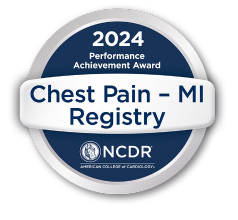Treating Heart Disease
The Cardiology Department at Wellington  Regional Medical Center in Wellington, Florida has a team of highly trained medical professionals that use advanced technology to diagnose and treat a variety of cardiac disorders. Diagnostic studies can provide doctors with information about heart valves, heart muscle and coronary arteries, as well as possible congenital heart abnormalities.
Regional Medical Center in Wellington, Florida has a team of highly trained medical professionals that use advanced technology to diagnose and treat a variety of cardiac disorders. Diagnostic studies can provide doctors with information about heart valves, heart muscle and coronary arteries, as well as possible congenital heart abnormalities.
The Cardiac Catheterization Laboratory provides comprehensive interventional procedures that can help save lives and prevent heart damage.
 Heart Risk Assessment
Heart Risk Assessment
This health assessment can help you discover important information about the health of your heart.
Schedule an appointment
To make an appointment with a cardiologist, please contact our free physician referral service at 561-798-9880.
Noninvasive services
The Cardiology Department offers a wide range of noninvasive services, including:
- Echocardiograms (transthoracic and transesophageal) — This test uses sound waves to produce images of your heart that can help physicians identify most heart or valve abnormalities.
- Electrocardiogram (ECG/EKG) — This painless test uses electrodes placed on your skin to record electrical activity in your heart. This can determine if you have an irregular heartbeat.
- Holter and patient-activated event monitoring — Holter and event monitors allow a doctor to monitor a patient's heart while the patient is home. A Holter monitor continually monitors your heart. With an event monitor, you need to start the device when you feel symptoms.
- Nuclear scan — These scans uses radioactivity to help doctors evaluate functional perfusion of blood to the heart muscle and identify any abnormalities. Radioactive material is injected into the bloodstream. If a particular area of heart muscle is not receiving adequate blood flow, little or no radioactivity will get into that part of the heart, and the images will show a dark spot in that area, surrounded by bright areas that show normal activity.
- Pacemaker and ICD — Noninvasive pacemaker and implantable cardioverter defibrillator (ICD) services include evaluation, reprogramming and resynchronization therapies with optimization.
- Stress tests — Stress testing is a reliable and widely used method of evaluating patients who are at risk of developing cardiovascular disease. While stress tests usually are performed with treadmills, stress also can be induced using medication for patients who are unable to exercise effectively. We offer standard ECG/EKG exercise stress testing as well as nuclear and echo-guided stress tests.
- Tilt Table Testing — Tilt table testing is used to evaluate patients who are having blackout spells.
Invasive services
Invasive, or interventional, services include:
- Cardiac catheterization — This test evaluates heart function, valve function and blood vessel disease. Thin, flexible tubes (catheters) are threaded through an artery from the patient's groin or arm. A contrast dye may be injected through the catheter so that blockages can be seen on an X-ray screen. If blockages are present, the physician may perform catheter-based intervention to open the artery and restore blood flow with a stent placement.
- Angiography and stent placement — This procedure restores blood flow through arteries that are narrowed or blocked by plaque, a condition called coronary artery disease.
- Pacemaker and ICD placement — Pacemakers and ICDs are used in patients with an arrhythmia. A pacemaker helps control abnormal heart rhythms. It uses electrical pulses to prompt the heart to beat at a normal rate. An ICD monitors heart rhythms. If it senses dangerous rhythms, it delivers a shock called defibrillation. Most new ICDs can also act as a pacemaker.
Recognized for outstanding heart attack care
 Wellington Regional Medical Center has received the American College of Cardiology’s NCDR Chest Pain – MI Registry Platinum Performance Achievement Award for 2024. The award recognizes the hospital's commitment and success in implementing a higher standard of care for heart attack patients.
Wellington Regional Medical Center has received the American College of Cardiology’s NCDR Chest Pain – MI Registry Platinum Performance Achievement Award for 2024. The award recognizes the hospital's commitment and success in implementing a higher standard of care for heart attack patients.
Watch this video and hear Lorraine Renz tell her story of surviving a heart attack.
Call the cardiology department at Wellington Regional
To make an appointment with a cardiologist, please contact our free physician referral service 561-798-9880.
